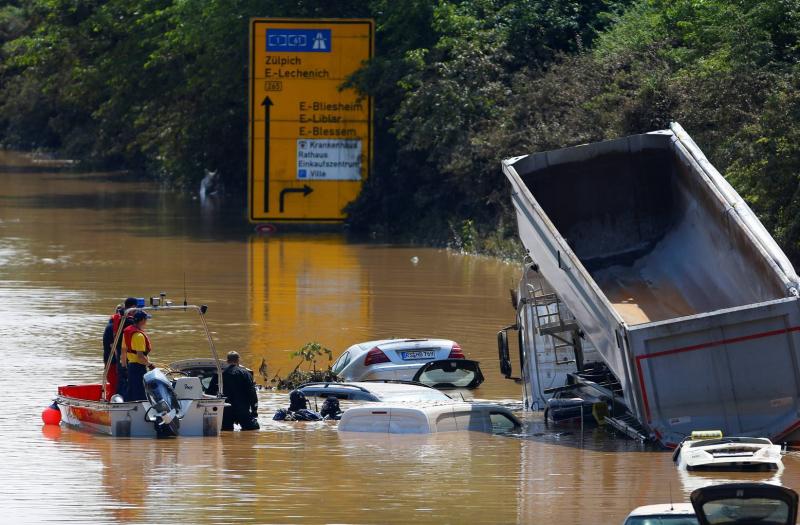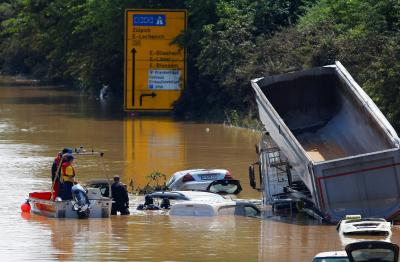Did the meteorological and civil protection authorities in Germany fail considering the death toll from the floods this week? The debate intensifies following the disaster, with increasing calls to raise public awareness. Gregor Degen, who was born and still lives in Bad Neuenahr-Ahrweiler, one of the hardest-hit towns in Germany, said, "Two days before the disaster, we were working here very normally. We heard about heavy rainfall in the weather forecasts and saw roads flooded in the area, but no one expected anything like this to happen." He recounted, "The following night, a brief alert was issued, but it came too late considering the flood's intensity," as the raging waters reached a height of 2.5 meters in the town, stating, "There was no chance for us to protect ourselves." Like many residents of this town, which has a population of 30,000 in Rhineland, Degen lost nearly everything.
Criticism is being directed at civil protection and the meteorological service, which are supposed to alert the public in a timely manner and issue evacuation instructions, in light of the human losses: over 150 fatalities and hundreds of injuries according to the latest toll. Hannah Cloke, a professor of water resources at the University of Reading in the UK, speaking to the German TV station ZDF about a failure in the warning system, said, "In 2021, we should not be shocked by such a high number of casualties." She continued, "Days before, we anticipated what was going to happen (...) Yet, somewhere the chain of warning was cut, so people did not receive alerts." The newspaper "Bild," Germany's most widely read, reported "failure before the floods," adding, "Sirens fell silent in many locations, and no warnings were issued" via radio and television stations. "All of this (...) is a disaster for civil protection, one of the core responsibilities of the state."
The meteorological service defended itself, asserting that it had warned of heavy rainfall. Malu Dreyer, the governor of the most affected state of Rhineland-Palatinate, confirmed on Sunday that all flood warning systems were activated. However, she acknowledged that the disruption of mobile phone networks due to the floods made it challenging to alert residents. Wolfram Geier, head of risk management in German civil protection, told public radio, "People did not realize that the small stream nearby their home would burst its banks very quickly."
However, the head of the agency admits shortcomings. Gerd Landsberg stated on Sunday to the "Funke" regional press group that residents "felt it was just heavy rain," but were "not clearly informed about its scale." He called for a "significant strengthening" of the agency's services "both in terms of numbers and skills." German Research Minister Anja Karliczek also urged authorities to prepare better. She stated, "One lesson from this disaster that occurred in West Germany is that we need to improve research on extreme climate phenomena over the coming years." However, German Chancellor Angela Merkel, who inspected the damage from the floods on Sunday, warned against exaggerated expectations. She added, "Of course, we think about ways to improve after every event. But sometimes, natural disasters occur so quickly that we cannot escape them."




